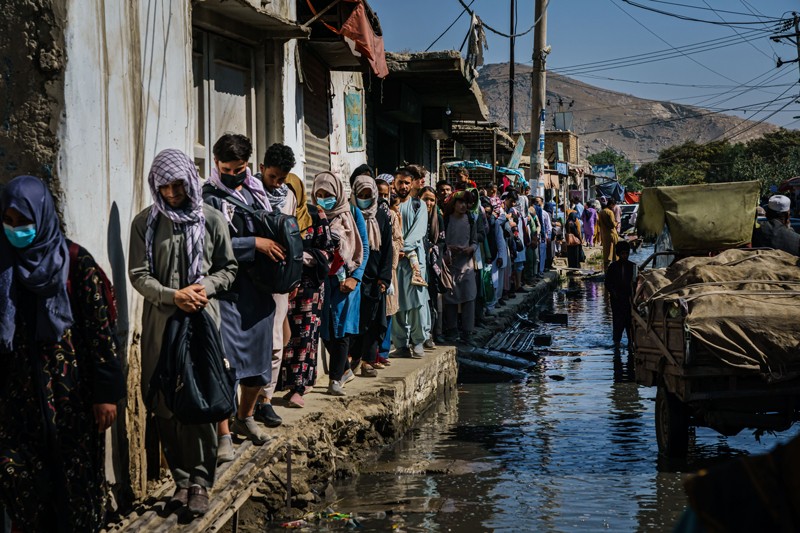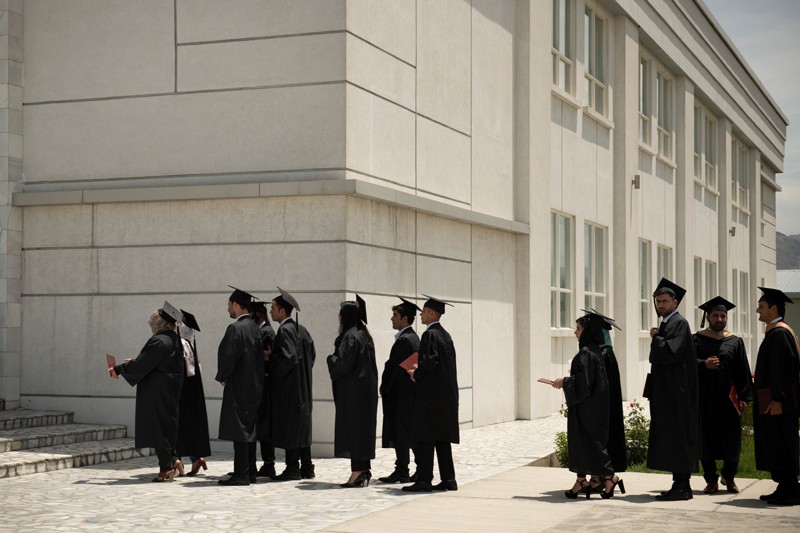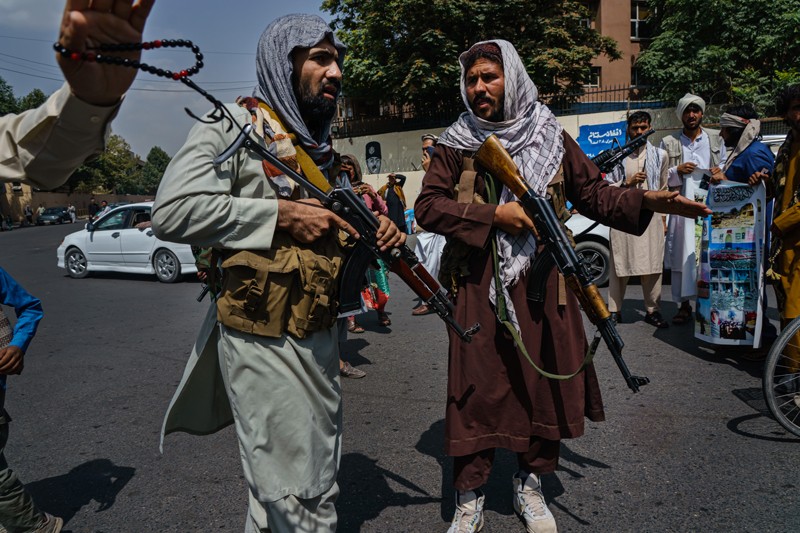On Sunday 15 August, geologist Hamidullah Waizy was interviewing work candidates at the Ministry of Mines and Petroleum in Kabul when he was told the Taliban experienced entered the metropolis, and he need to evacuate. The upcoming morning, he saw armed militants on the streets.
Waizy, a researcher at Kabul Polytechnic University who was not too long ago also appointed director-general of prospecting and exploration of mines at the ministry, was stunned by the city’s quick fall. Because then, he’s lived in limbo, generally shuttered up in the relative security of his property.
Across Kabul, most universities and public offices continue being closed. The Taliban states it needs officials to go on doing work, but it is not clear what this will search like. “The foreseeable future is pretty unsure,” Waizy explained to Nature.
When the fundamentalist team last held the state, in 1996–2001, it brutally enforced a conservative model of Islamic Sharia law, characterised by women’s-rights violations and suppression of freedom of expression. But immediately after it was overthrown in 2001, intercontinental funding poured into Afghanistan and universities thrived.
Now, lecturers dread for their own protection. They also fear that investigation will languish without dollars and personal freedoms, and for the reason that educated individuals will flee. Some anxiety that they could be persecuted for getting associated in intercontinental collaborations, or because of their fields of research or their ethnicity.
Tough-acquired gains
“The achievements we had more than the previous 20 a long time are all at good risk,” suggests Attaullah Ahmadi, a public-well being scientist at Kateb College in Kabul.
In accordance to news reviews, billions of bucks in abroad finance for Afghanistan’s authorities — these as belongings held by the US Federal Reserve and credit score from the Worldwide Financial Fund — have been frozen. It is not distinct whether or not or when the funding will be introduced, and how that will influence universities and scientists, but quite a few report salaries not currently being paid out.
In 2001, following the September 11 terrorist assaults in the United States, a US-led coalition invaded Afghanistan and overthrew the Taliban. In 2004, a new government was elected.
Kenneth Holland, a dean at O.P. Jindal International College in Sonipat, India, was president of the American College of Afghanistan (AUAF) in Kabul in 2017–19. He claims that when he arrived in the place in 2006, he uncovered “almost no research being carried out at universities no society of research”.
Because 2004, the World Lender, the US Company for International Improvement and other worldwide organizations have poured hundreds of hundreds of thousands of pounds into universities to assist instructing, faculty education and some investigate, he states.
Some a few dozen community universities have been proven or re-founded due to the fact 2010, and tens far more non-public universities have been established up. General public universities are funded by the Ministry of Greater Schooling, which is financed by worldwide donors, says Holland. Personal universities endure on tuition fees, although the AUAF is generally funded by the US authorities.
Hopes and aspirations
The scholar population at general public universities grew from 8,000 in 20011 to 170,000 in 2018, a single-quarter of whom by that time ended up women2. And while Afghanistan’s contribution to intercontinental journals remained modest, the number of papers recorded every year in the Scopus databases amplified from 71 in 2011 to 285 in 2019.2
Shakardokht Jafari, a professional medical physicist at the University of Surrey in Guildford, United kingdom, who is initially from Afghanistan, has witnessed considerably progress given that 2001, from burgeoning enrolment of female learners to escalating output on subject areas from cancer to geology. But now she fears “there will be a stagnation of science and exploration progress”.
For a very long time “scientists regarded Afghanistan a black hole”, suggests Najibullah Kakar, a geohazards scientist at the GFZ German Analysis Centre for Geosciences in Potsdam. He is one particular of numerous Afghans who went abroad for their education and learning, intending to return with new techniques to enable construct the country. In 2014, he helped to put in Afghanistan’s initial seismic community to review plate tectonics. He continued that operate right until 2019, when conflicts built it difficult to travel to distant locations.
He and his staff prepared to build a seismic monitoring and research centre in Afghanistan to warn of natural hazards. But considering the fact that the fall of Kabul, they have been in a state of panic, and Kakar, who claims he has not slept for times, is desperately striving to support get his colleagues out.
Scholars less than menace
Kakar’s colleagues are among a tide of researchers seeking asylum abroad. Rose Anderson, a director at humanitarian organization Scholars at Risk (SAR) in New York City, which finds threatened students secure havens at universities, suggests that in August by yourself, SAR acquired additional than 500 purposes from persons in Afghanistan.
Some are law scholars who fear reprisals if their area is at odds with the Taliban’s interpretation of Sharia regulation. A lot of gals worry getting targeted for their gender and women’s-legal rights activism some men panic becoming punished for educating or supervising girls. Some others stress that they could be added to hit lists mainly because they studied overseas or have global connections.
Almost all “reported a fear of being specific just since they are in favour of no cost and critical inquiry and held ideals close to respect for human legal rights and women’s rights”, says Anderson. Quite a few have gone into hiding, or program to cross into neighbouring international locations.
So far, Anderson suggests, 164 institutions globally have agreed to host scholars, and SAR has appealed to US and European governments to speedy-keep track of visas and continue on evacuation flights.
But getting men and women out is difficult: embassies are shut, Kabul airport is overrun and dangerous to get to, and escape more than land is challenging. Many at risk continue being in Afghanistan.
Holland says researchers at the AUAF are particularly vulnerable. The establishment has been attacked by militants right before: in 2016, 13 individuals ended up killed, together with college users, team and pupils. All 60 or so non-Afghan personnel users have been evacuated, but only about 20 of some 400 regional employees have been flown out, he states. Yet another 800 learners and more than 1,000 alumni could become targets, Holland claims.
Risk to minority teams
The major share of Afghanistan’s populace of 39 million, which includes a lot of members of the Taliban, is ethnically Pashtun. Scientists from other ethnic teams danger persecution.
Musa Joya is a health care physicist at Tehran University of Health care Science in Iran, who also works as a lecturer in Kabul. He belongs to the Farsi-speaking Hazara local community, which he says will make him a goal. He experienced prepared to return to Kabul next 12 months to function at a radiotherapy centre supported by the Intercontinental Atomic Electrical power Company, but those designs could be suspended. Remaining in Iran may not be a solution possibly, simply because it is challenging for non-nationals to achieve employment at investigation institutes, Joya suggests.
His spouse and children are however in Afghanistan. “I truly see a darkish upcoming,” he says. “I really do not know how to feed my spouse and children how to rescue them how to protect them.”
He has not heard studies of the Taliban persecuting individuals in Kabul, but information of killings in other provinces alarms him. People today are “getting all set for a storm”, he suggests.
There are a several hints that issues may possibly not be as restrictive as they were being less than the earlier Taliban administration. Many researchers report that the Taliban is in dialogue with university heads about restarting courses. There are suggestions that females may well be allowed to continue their experiments, although the Taliban has requested that gals and adult men be taught independently, and some universities have proposed introducing partitions in lecture rooms.
But in the metropolis of Bamyan, west of Kabul, females have been informed not to do the job and to continue to be at property, suggests a female lecturer and education researcher there, who graduated from AUAF and is Hazara. “I am beneath risk from the Taliban now,” she suggests.
Appeals for help
Researchers also stress about the upcoming of study. Joya fears that the Taliban will not prioritize exploration, or recognize its value. And he does not know how universities will cope with no intercontinental monetary guidance.
One Kabul-primarily based scholar and member of the Afghanistan Science Academy, who does not want to be named, claims this is the third time that he and his spouse and children, like many in Afghanistan, have misplaced all the things. He fled during the unrest in the late 1970s forward of the invasion of the Soviet Union all over again in the late 1990s all through the Taliban’s prior tenure and is now considering fleeing as soon as more. “It is a incredibly hard problem for a human getting: you are born in war, you increase up in war and now you will die in war.”
Quite a few people with postgraduate degrees have previously fled. “This is a major disaster for the foreseeable future of Afghanistan,” he says. “There will be no educated people today left.”
The academy, for instance, used some 200 scholars and 160 other staff, with an yearly budget of some 300 million afghani (US$3.5 million), he provides. But they, and many govt personnel, have not been compensated for two months, as the Taliban tightened its grip on the nation.
“The process is almost paralysed,” claims Ahmadi.
It is not distinct irrespective of whether the intercontinental community will recognize the new federal government and proceed to present funding. Scientists hope they will not be deserted. “We put in all our funds, energy and time in Afghanistan to make a brighter upcoming for ourselves and our little ones. But with this kind of withdrawal, they ruined all our life, all our hopes and ambitions,” states Joya.



